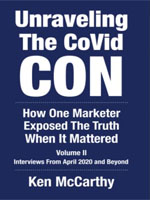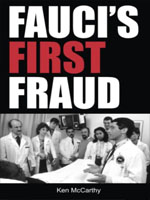A silent epidemic
Multiple chemical sensitivities
Heavily censored news
Click here to support Brasscheck
Ever have had a bad reaction to a scent like a so-called air freshener or the fragrance from laundry soap or fabric softener?
There’s a good reason for that.
These products contain actual neurotoxins, chemicals that disrupt the normal functioning of the nervous system.
Some people are made very sick by these products. They literally have the same reaction one would have from exposure to toxic gas. Severe headaches, dizziness, inability to think clearly, “speediness”, and a feeling of drunkenness come over them. People with certain kinds of asthma can even have life-threatening reactions.
The Centers for Disease Control knows about the dangers of these products and bans their use in their agency’s offices.
But what about the rest of the public?
Why aren’t we being told about the grave dangers of these products?
One word: money.
Do you know how much money the makers of these products – companies like Proctor & Gamble, Unilever, and Johnson & Johnson spend on advertising each year?
Literally, these manufacturers keep TV, radio, and newspaper companies in business. The mass media will never report their dangers because billions in ad revenue are at stake.
If you or someone who lives with you are irritated by certain products, get them out of your house before they create a chronic condition. Even better, just get rid of them.
If you are exposed to anything at work, at home or socially that gives you a reaction like this, do everything you can to get away from it – or have it removed permanently.
I realize this is easier said than done, but the stakes are high. Small problems can grow into much bigger problems.
You don’t have to be a 9/11 rescue worker, an oil refinery worker, or a Gulf War vet to develop this disease. Anyone can get it
More info:
Complete Interview with Christine Oliver MD
The Chemical Sensitivity Foundation
American Academy of Environmental Medicine
Multiple chemical sensitivity: a 1999 consensus
A definition of MCS from Christine Oliver MD
Associate Clinical Professor of Medicine at Harvard Medical School in Boston
Associate Physician in the Department of Medicine (Pulmonary and Critical Care Division) at the Massachusetts General Hospital (MGH)
President of Occupational Health Initiatives, Inc.
Click here to support Brasscheck
Brasscheck Books:
Censorship
Amazon #1
Political Freedom
Amazon #1
Law Ethics
& Responsibility
New Release
Financial Risk
Management
Amazon #1
New Release
Options Trading
Amazon #3
Best Seller
Business Ethics
Amazon #1
Human Rights Law
Amazon #1
Law Ethics &
Responsibility







